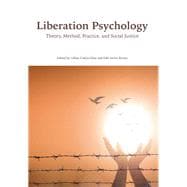
Note: Supplemental materials are not guaranteed with Rental or Used book purchases.
Purchase Benefits
What is included with this book?
Lillian Comas-Diaz, PhD, is a clinical psychologist in private practice and a clinical professor in the Department of Psychiatry and Behavioral Sciences at George Washington University. The author of over a hundred publications, Dr. Comas-Díaz is also the coeditor of Latina Psychologists: Thriving in the Cultural Borderlands, Womanist and Mujerista Psychologies, and Psychological Health of Women of Color. Dr. Comas-Díaz is the founding editor of Cultural Diversity and Ethnic Minority Psychology,the official journal of the Society for the Psychological Study of Ethnic Minority Issues (Division 45 of the American Psychological Association). She is an associate editor of the American Psychologist.
Edil Torres Rivera, PhD, is a professor in the Department of Counseling, Educational Leadership, Educational and School Psychology; and Director of the Latinx Studies program at Wichita State University, Kansas. His primary research focuses include complexity and the use of indigenous healing techniques as a necessary element in psychological work with ethnic minority populations in the United States. He serves on the editorial board of the Journal for Social Action in Counseling and Psychology and is the editor of the Interamerican Journal of Psychology. Visit https://etorresrivera.wixsite.com/elmaestro
Series Foreword
Frederick T. L. Leong
Foreword: How APA Has Promoted Social Justice
Melba J. T. Vasquez
Introduction
The New copy of this book will include any supplemental materials advertised. Please check the title of the book to determine if it should include any access cards, study guides, lab manuals, CDs, etc.
The Used, Rental and eBook copies of this book are not guaranteed to include any supplemental materials. Typically, only the book itself is included. This is true even if the title states it includes any access cards, study guides, lab manuals, CDs, etc.